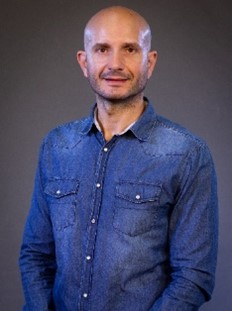Project Spotlight
date: 23/05/2024
permalink: Main URL
We talked to Raúl Zornoza Belmonte (in the picture below), coordinator of the EU-funded project BIOservicES: ‘Linking soil biodiversity and ecosystem functions and services in different land uses: from the identification of drivers, pressures and climate change resilience to their economic valuation’.

Could you tell us more about the ongoing work and future plans of BIOservicES?
In the initial months of the project, we focused on standardising soil sampling procedures, storage, shipment and analysis methods. We established uniform procedures and methods by collaborating with experts from other Horizon 2020 / Horizon Europe projects, international initiatives (like Soilbon, Global Soil Partnership – Food and Agriculture Organization, the Intergovernmental Science-Policy Platform on Biodiversity and Ecosystem Services, and the Earth Microbiome Project) and EU institutions and bodies (such as European Commission's Joint Research Centre and the European Environment Agency). All finalised protocols are now available on our website.
From April to June 2024, we'll conduct soil sampling at our 25 study sites across Europe, covering various land uses (agriculture, forestry, seminatural, industrial, mining, wetland) with varying intensity of use. After collecting soil samples, our partners will analyse taxonomic groups and functionalities of various organisms, including viruses, archaea, bacteria, fungi, protists, nematodes, microarthropods, earthworms, isopods, millipedes, insects and spiders. Additionally, we'll assess indicators related to several ecosystem services, such as nutrient storage, filtering, transformation, pollutant transformation, water retention, infiltration, and raw material production.
Following this, we'll use biostatistical analysis and machine learning algorithms to establish relationships between soil organisms and multiple ecosystem services. This approach will not only uncover the links between soil organisms and ecosystem service delivery but also identify keystone organisms that significantly contribute to ecosystem services either independently or through interactions.
Why is the work of the Mission Soil important for Europe?
Before the launch of the Mission Soil, institutions paid little attention to soil. However, soil plays a vital role in food, timber, feed and industrial product production. It also helps maintain forests, natural environments, aquifer recharge and water purification, contributing to environmental and human health. Unfortunately, due to unsustainable soil management practices, many soils in Europe have degraded. They've lost their ability to support human wellbeing and have become sources of pollutants and pathogens.
The Mission Soil aims to reverse this trend by providing robust scientific data to inform regulations on soil actions and establish effective monitoring, conservation and restoration methods. The results of Mission Soil projects will play a crucial role in contributing to the upcoming soil monitoring law and contributing to the development of the EU Soil Observatory.
What do you like most about your work on BIOservicES?
The best part of working on BIOservicES is the consortium itself. Comprised of dedicated professionals with high motivation, ambition, skills and a collaborative spirit, the consortium members work together towards common objectives. Additionally, the international collaborations forged with other projects, initiatives and organisations have been immensely rewarding. Working collectively across institutions is the key to our success.
Learn more about the BIOservicES project by clicking the “More” button below:
